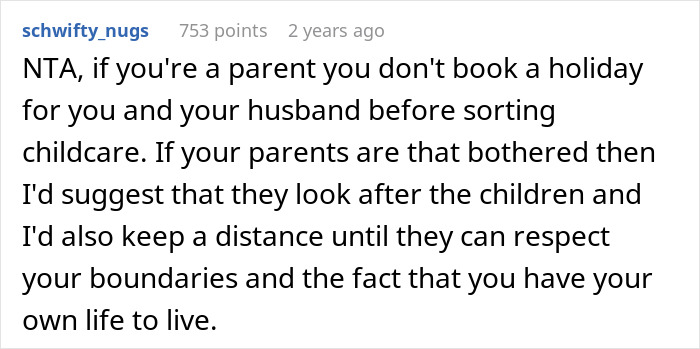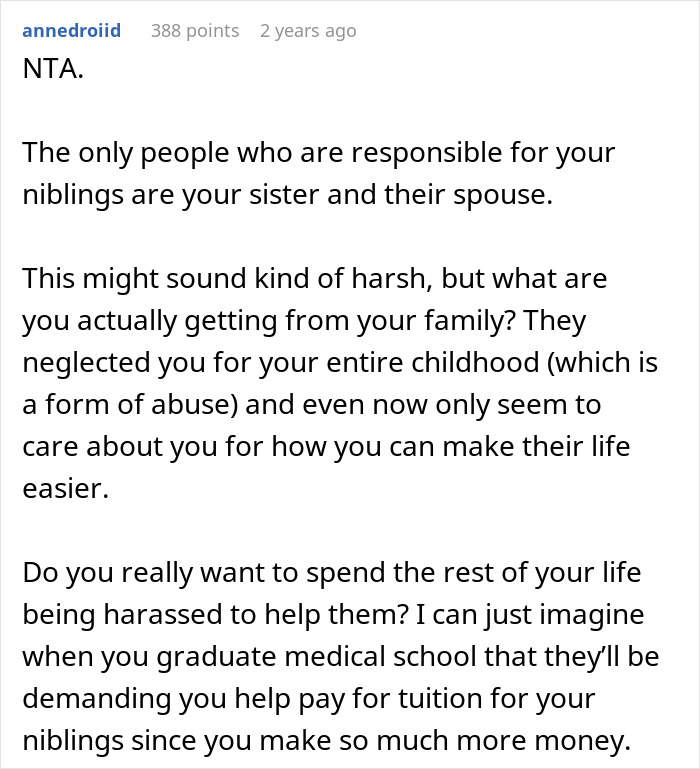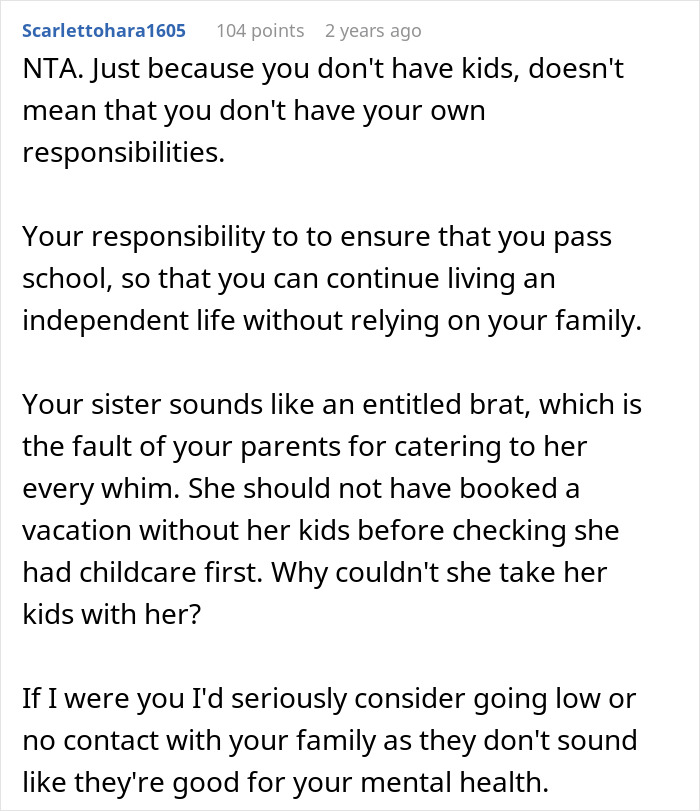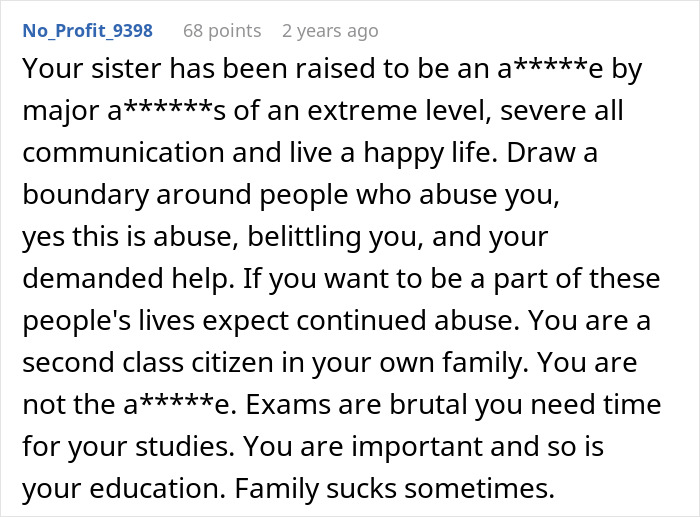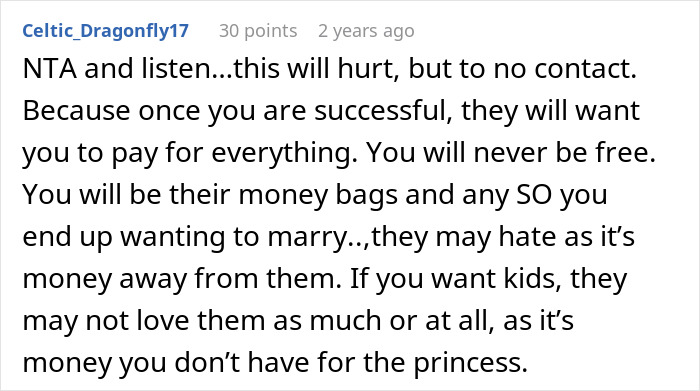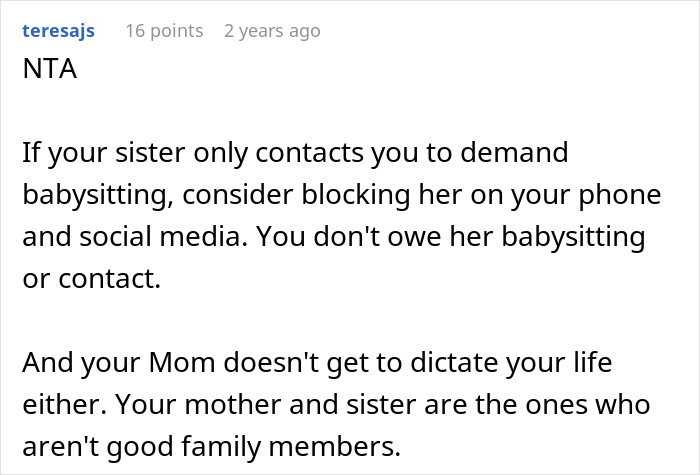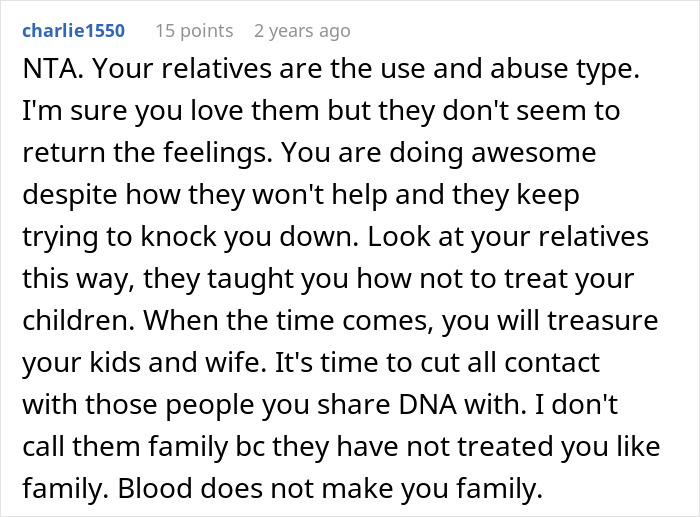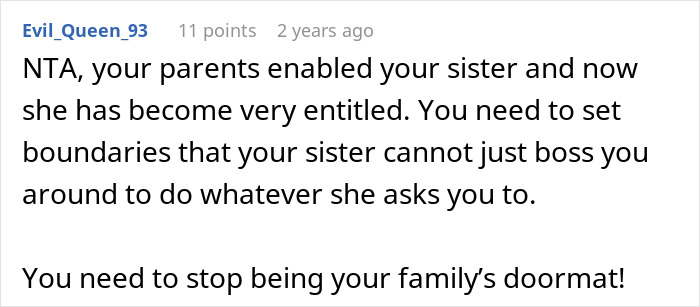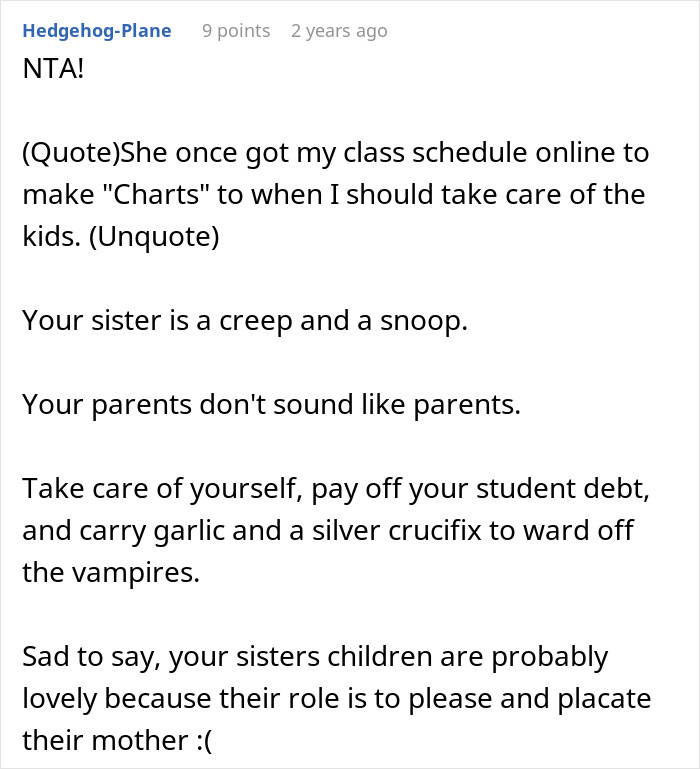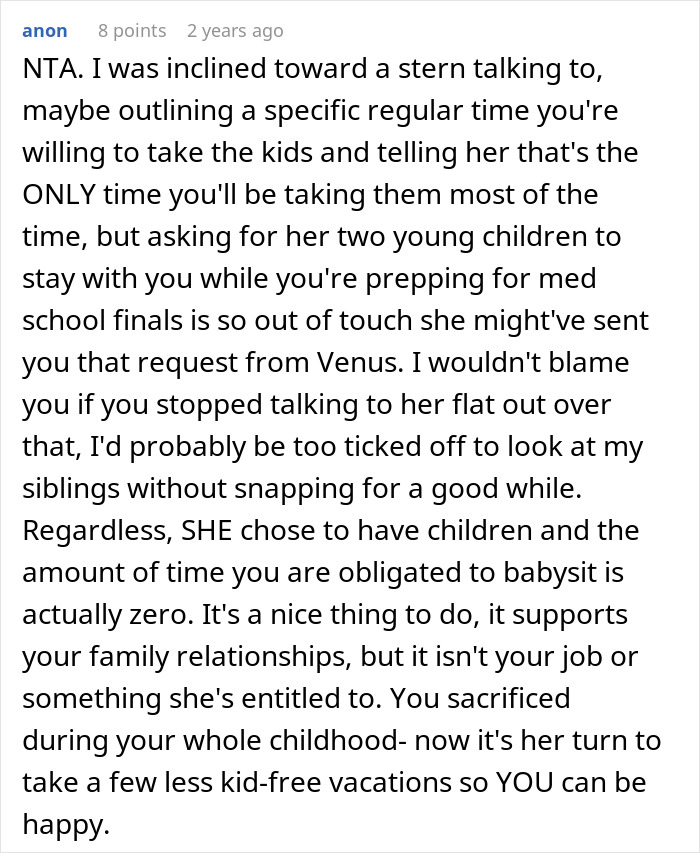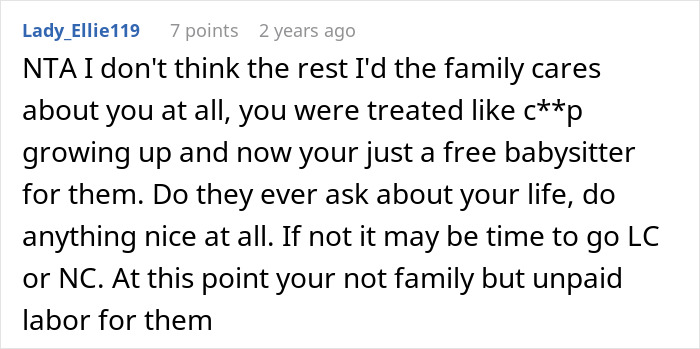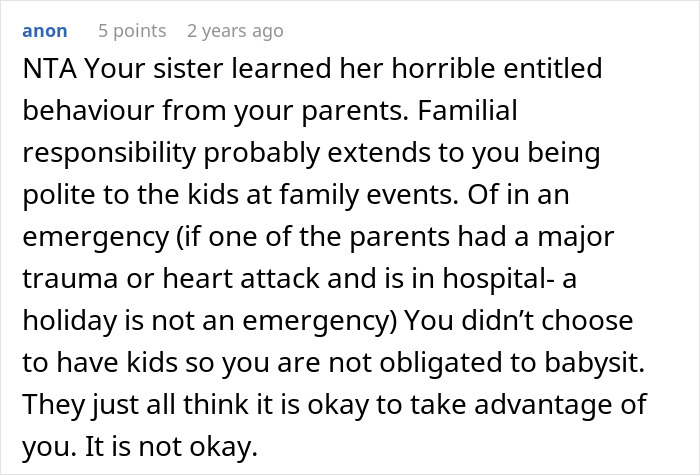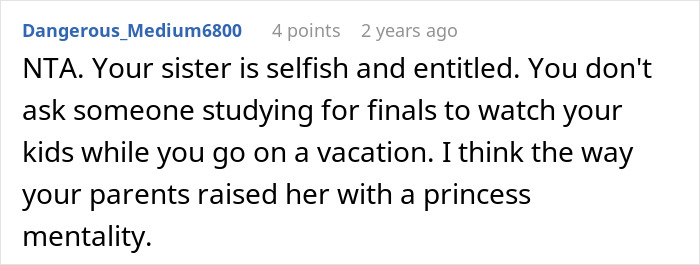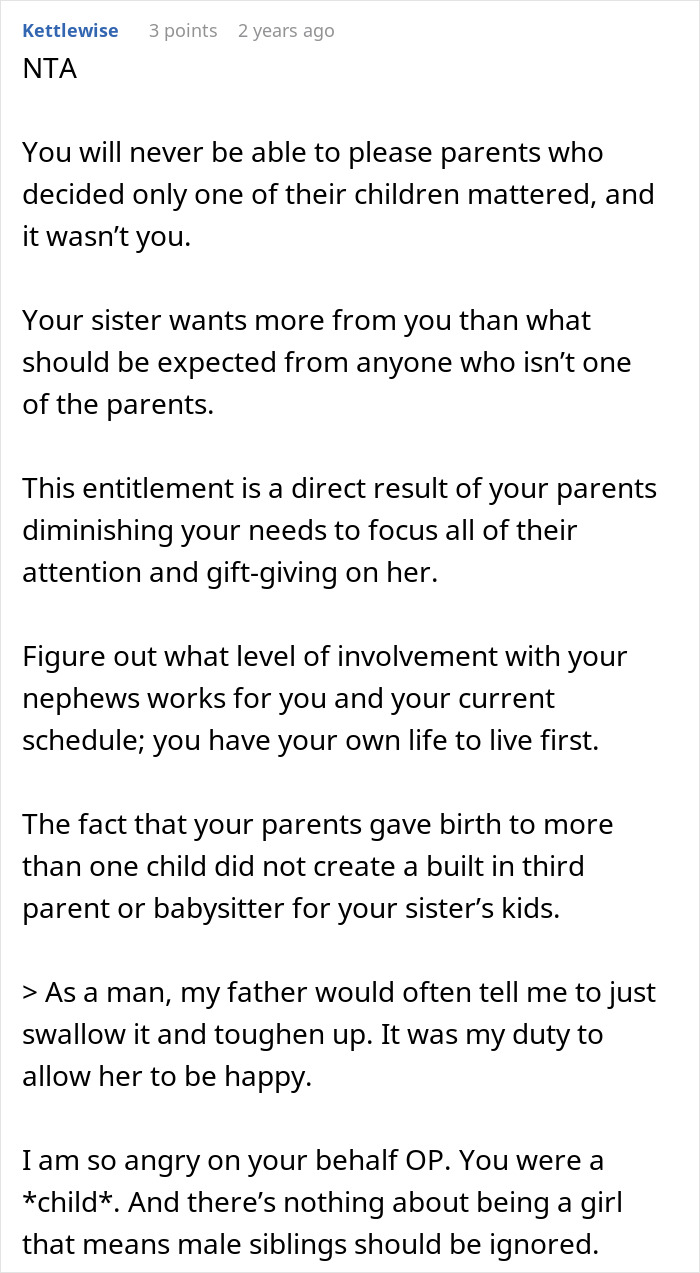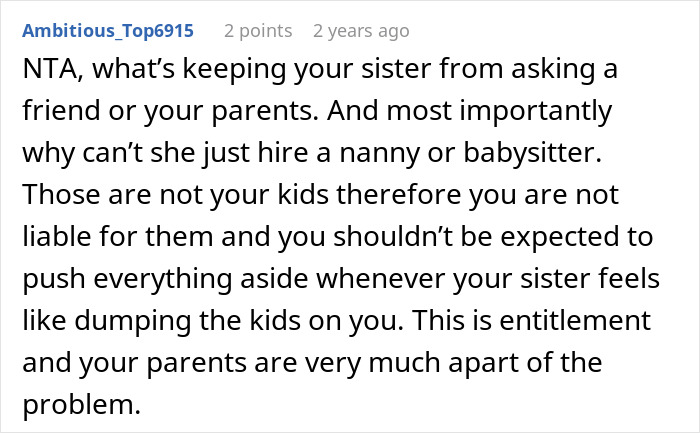Those who have siblings know it isn’t always easy to have a good relationship. According to a 2023 German study, 28% of people experience sibling estrangement at least for one period in their adulthood. But it isn’t always so extreme: you can have a bad relationship with a sibling and still speak to them.
That turned out to be the case for these fraternal twins. Their already-fraught relationship worsened after the sister repeatedly disrespected her brother’s time. When she got mad at him for not babysitting while she and her husband went on vacation because he prioritized his mental health, he asked netizens whether he was being such a jerk as she made him out to be.
To learn more about fraught sibling relationships and how favoritism affects their relationships in adulthood, Bored Panda reached out to licensed mental health professional Haley Neidich, LCSW. She told us how adult siblings can repair relationships and what are the effects of favoritism. Read her expert insights below!
A brother refused to babysit his fraternal twin sister’s kids and got called “ungrateful” by their parents

Image credits: Andrej Lišakov / Unsplash (not the actual photo)
He then detailed their sibling relationship, and it became apparent that the issue wasn’t babysitting

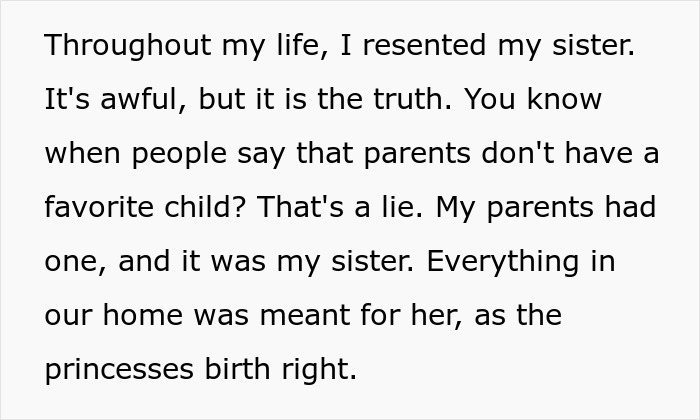
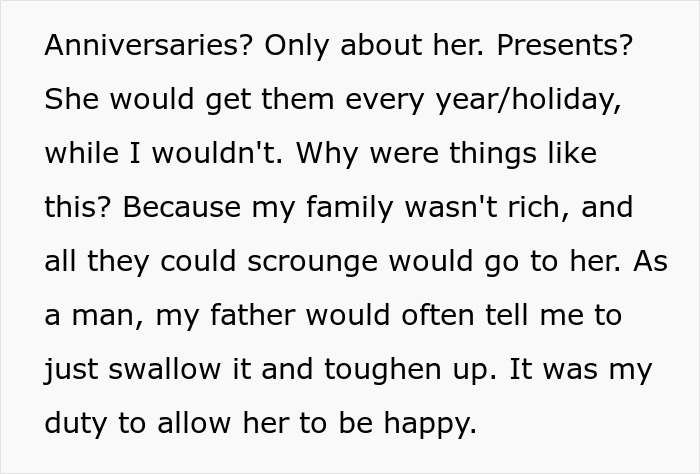

Image credits: Ivan Samkov / Pexels (not the actual photo)
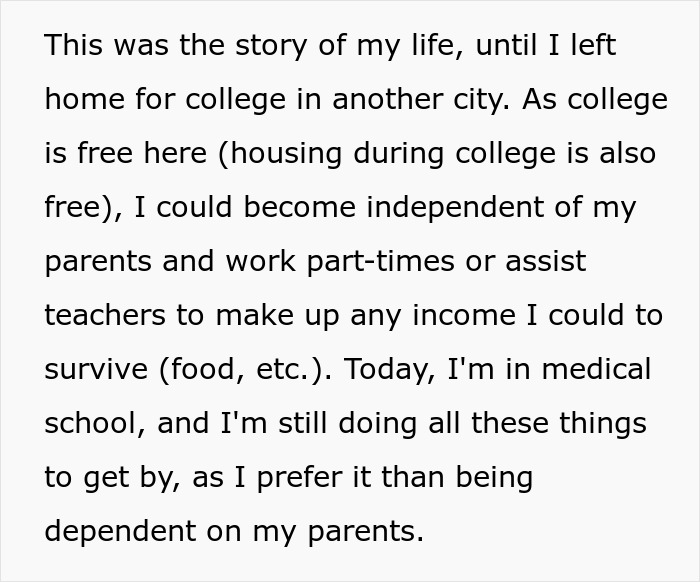

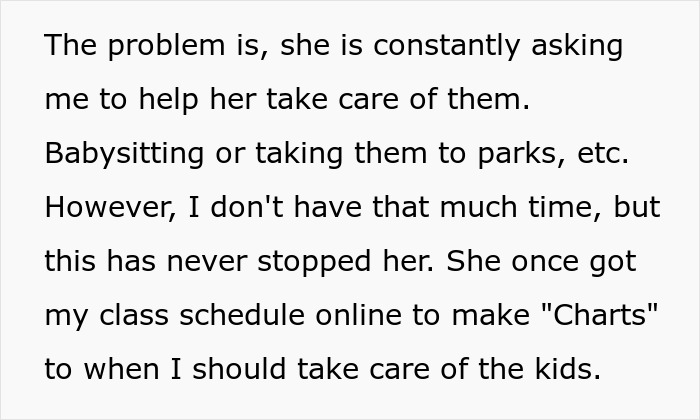

Image credits: saeed karimi / Unsplash (not the actual photo)



Image credits: Priscilla Du Preez 🇨🇦 / Unsplash (not the actual photo)

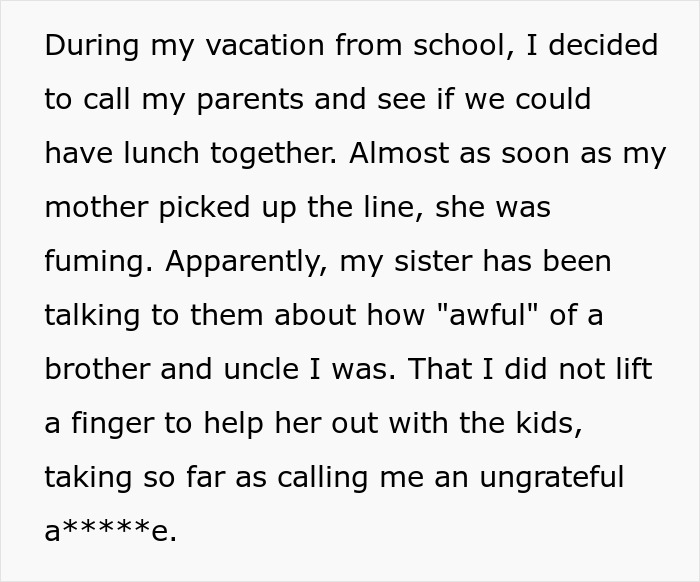
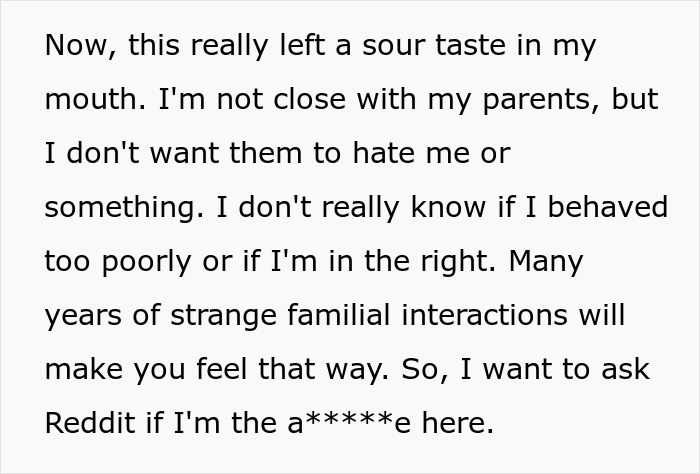
Image credits: Temporary_Book7337
Parental favoritism causes the sibling relationship to be strained in adulthood and negatively impacts both kids
The OP begins his story by giving some background about his relationship with his fraternal twin sister. He claims that their parents always favored her over him: gave her gifts during holidays and on birthdays, spent their last cents on her. And he wouldn’t get anything because he was the boy.
Psychotherapist Haley Neidich tells Bored Panda that parental favoritism is quite common. It is, however, often unintentional. “It often manifests in subtle ways, such as praising one child’s achievements while ignoring or being overly critical of another,” she explains.
When the siblings grow up, one might still carry the hurt from childhood. “Over time, this can lead to strained sibling relationships, with unresolved resentment and feelings of competition persisting into adulthood,” Neidich says.
The psychotherapist explains that parental favoritism negatively impacts both children, not just the ones who are neglected. “Even the ‘golden child’ can feel trapped by expectations,” she adds, “while the less-favored sibling often struggles with self-esteem. Individuals in both roles often end up needing to work through the challenges caused by this in therapy.”
Psychotherapist Haley Neidich says that the ‘golden child’ often carries their own burdens

Image credits: cottonbro studio / Pexels (not the actual photo)
Many commenters suggested the OP limit contact with his family and his sister. That’s one option and, perhaps, it might work at the moment, while emotions are still high. However, the problems in the siblings’ relationship stem from something much deeper than just childcare.
Yet that doesn’t mean they can’t repair the relationship. Although it may seem hard (or like the sister doesn’t deserve it, according to some commenters), there is a way forward. Neidich says that the first step is processing your feelings in a healthy way.
“Whether through journaling, therapy, direct communication, or self-reflection,” she lists the options. “Focus on the relationship you want now, rather than past hurts, and set boundaries to protect your peace of mind.”
The brother seems to be blaming his sister for the fact that their parents favored her, referring to her as “princess” and such. But Neidich says that it’s important to recognize that the other sibling isn’t to blame. “Recognizing that you and your sibling were both children and that the adults around you caused this dynamic can create a space where healing can occur,” she explains.
“Compassion also helps,” she adds. “Many clients realize that the ‘golden child’ carries their own invisible burdens, which can ease resentment and lead to more effective communication. I have seen sibling relationships heal in adulthood and want folks to know that it is absolutely possible to develop a healthy, supportive relationship with your sibling.”
“Open dialogue in individual and family therapy can lead to breakthroughs in understanding the family dynamics that contributed to these hurts,” Neidich continues. “Many adults work hard to avoid repeating favoritism with their own children, but awareness of unconscious biases is key.”
“Reclaiming self-worth outside of family dynamics helps individuals move forward and heal as families with these dynamics often deal with poor boundaries and enmeshment.”
People strongly advised the man to distance himself from his family, at least for a while

